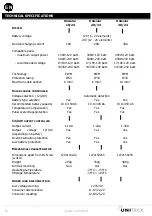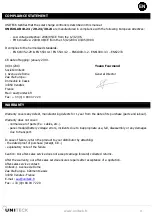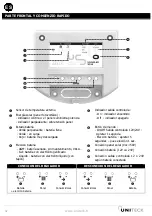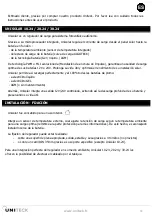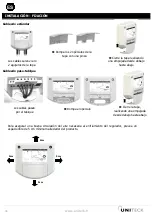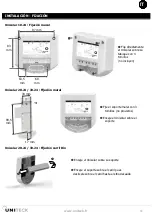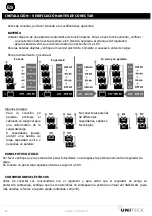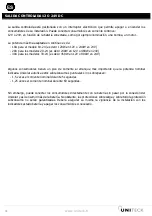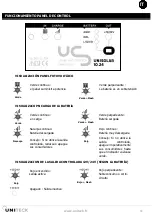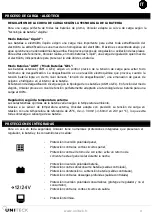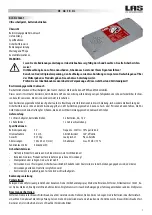
EN
26
CHARGING PROCESS - ALGOTECK (CONTINUED)
CHARGE CURVE REGULATION DEPENDING ON THE BATTERY TECHNOLOGY
To perfectly recharge all lead acid batteries, Unisolar adapts its load curve according to the " battery
’s
technology" previously selected:
"Liquid" Battery Mode:
Liquid electrolyte batteries require higher loads to avoid any stratification of the electrolyte. Stratification is a
non-homogenous blend of the electrolyte. Acid is concentrated at the bottom and the water at the top (due to
its lower density). This phenomenon leads to freezing risks or oxidation of the plates. To avoid this, Unisolar
makes (in a liquid batteries mode) an equalisation charge that mixes the electrolyte, which is essential to
preserve the lifespan of your battery.
"AGM" Battery Mode/ "GEL" Battery Mode :
Lead batteries (AGM or GEL) require a precise control of the charge voltage to avoid bleeding phenomenons.
Bleeding is an electrochemical reaction that leads to the release of oxygen and hydrogen gases inside the battery
when the battery voltage reaches a point named "gasification voltage".
This voltage changes according to the type of the batteries (AGM or GEL). Depending on the selected mode,
Unisolar releases a voltage level adapted to the technology of your battery for a recharge up to 100%.
Regulation by external/outside temperature
Chimical characteristics of the battery vary depending on the ambient temperature.
With its external temperature sensor, Unisolar adapts its charge voltage precisely in relation with the reference
temperature of 25°C, of +/- 30mV (+/-60mV - 24V by °C), which avoids overloads and under loads.
INTEGRATED PROTECTIONS
For a safe use, Unisolar has several protections that preserve the solar charge controller, the battery and the
consumers in output:
-
Panel polarity reversal protection,
-
Protection against panel short-circuits,
-
Protection against reversed current: prevents reversed current towards the solar
panel during the night.
-
Battery polarity reversal protection,
-
Protection against battery overconsumptions (controlled output),
-
Battery overvoltage or under voltage protection (controlled output),
-
Protection against deep discharges (controlled output).
- Consumers polarity reversal protection (protects the solar charge controller, not the
consumer),
- Protection against short circuits in output.
- Thermal protection.



















